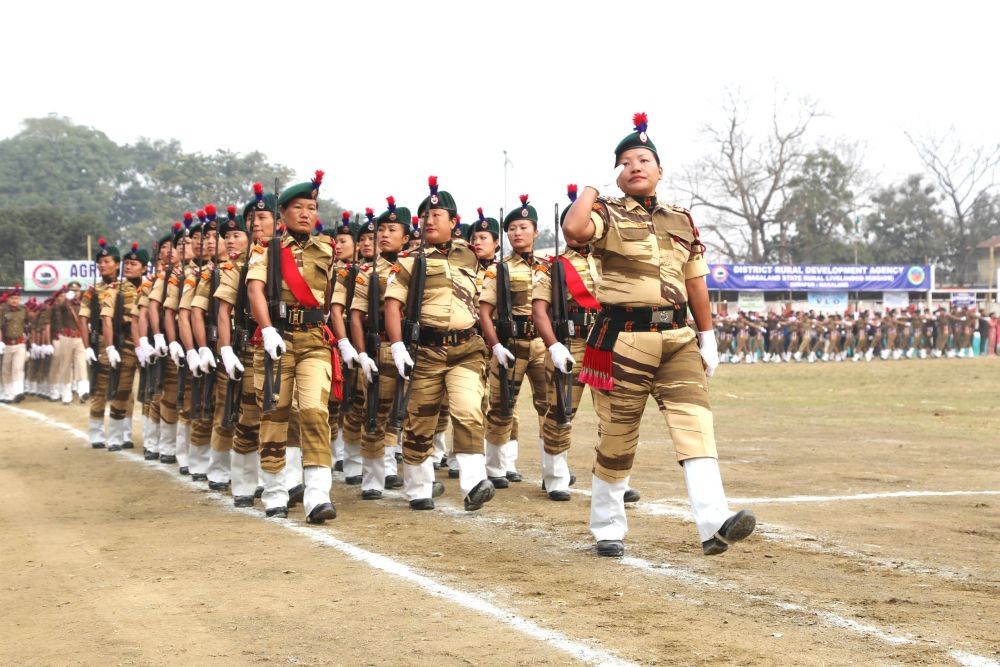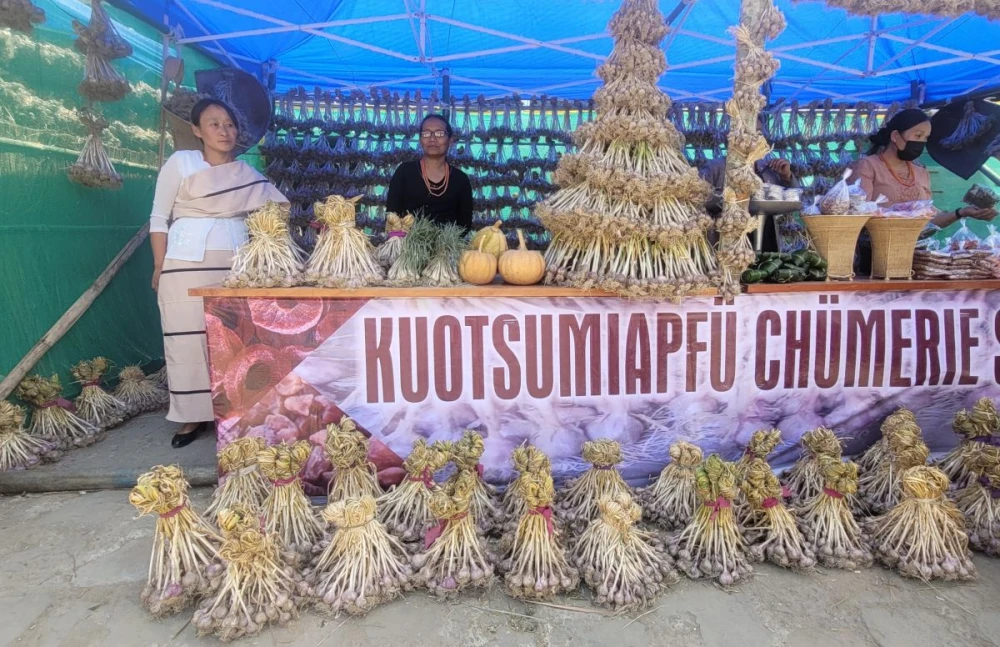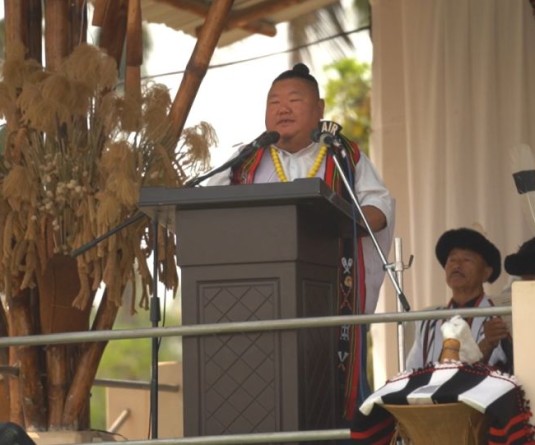Women personnel of the Nagaland Police take part in a Republic Day parade. An official survey informs that women's participation in Nagaland’s organised public and private sectors has increased significantly over the past decade. (Morung File Photo)

Our Correspondent
Kohima | April 13
Women’s participation in Nagaland’s organised sector has been rising significantly over the past decade, an official report highlighted.
In 2005-06, 18.23% of women were engaged in the public sector and 35.02% in the private sector, according to the Nagaland Economic Survey 2024-25, published by the Department of Economics & Statistics, Government of Nagaland.
By 2023-24, employment in the public sector had increased to 24.84%, showing a percentage rise of around 36.26%.
Women’s participation in the private sector was more pronounced, rising to 55.66% during the same period. This signifies a growth of around 58.94%.
Overall, female employment now constitutes 26.97% of total employment in Nagaland, the report noted.
As per PIMS (Personnel Information Management System) data, female State Government employees also increased from 22.65% of the total workforce in 2016 to 26.94% in 2024.
Meanwhile, out of 30,232 registered business enterprises in urban areas, 8,735 are owned by females and 21,497 by males.
The report further stated that women in Nagaland are increasingly participating in the services sector in urban areas.
It also highlighted that the female Labour Force Participation Rate (LFPR) of 44.7% in Nagaland is higher than the national average of 37%.
The LFPR indicates the number of women aged 15 and above who are employed or actively seeking employment.
The higher LFPR can be attributed to factors such as government initiatives promoting women's employment and entrepreneurship, as well as cultural acceptance of women participating in socio-economic activities, the report noted.
Citing the Nagaland Agriculture Census Report 2021-22, the report also noted that the total land holding in the State is 195,390 hectares, out of which women own 18.31% (35,795 hectares).
Efforts are being made to promote gender equality in land ownership, which is crucial for empowering women and ensuring economic independence, the report added.







